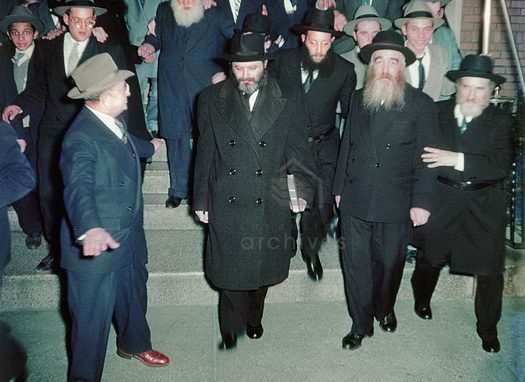
Weekly Story: V’Yaakov Hulach L’Darko
As is customary, on the Friday after Simchas Torah I post a thought or two from something I heard at a farbrengen throughout Sukkos. This is based on one of the points the Rebbe would always mention on Shabbos Bereishis, V’Yaakov Hulach L’Darko – that after the Yomim Tovim of Tishrei, it is time to unpack the merchandise you acquired and utilize it. As always your feedback is welcome and most appr eciated.
I heard from Rabbi Tuvia Bolton the following: He said, “I heard from Reb Mendel Futerfas, whichever mitzvos I was able to maintain while I was exiled in Siberia, I don’t take credit for it, as it was not my accomplishment. Hashem told us to put on tefillin, keep Shabbos, and eat kosher. So I did it to the best of my ability.
“However, there is one point that I do take credit for. I did not allow the authorities to make me sad and depressed. After a short time in prison, I noticed a phenomenon. Those who showed the slightest sign of breaking under the pressure of being in prison and losing their status and prestige, the authorities did many things to them to break them completely.
However, for those who maintained a positive attitude and projected happiness, the authorities didn’t know how to handle them and basically left them alone. They realized their regular tactics won’t affect them, so why waste our time on them?”
This concluded Rabbi Bolton, is the reason there is a mitzva to be joyous on Sukkos and especially on Shmini Atzeres and Simchas Torah.
No one is perfect and if a person focuses on his shortcomings, he will not be happy and the Yetzer Hora will constantly remind him of these shortcomings or failures of him. This can make him sad and depressed until he comes to a point and says, I will never truly succeed.
When however, he is happy that he is a Jew and takes pride in his accomplishments in the Torah he learns and the mitzvos he fulfills, that builds up an appetite to succeed even more.
So let us maintain this positive attitude throughout the year and we will have a successful year.
As in most farbrengens, one point leads into another, and this farbrengen was no different. Rabbi Bolton then spoke about the Akeida – where Avrohom Avinu brought his son on the alter, in today’s lexicon.
Imagine that one morning a father tells his son, “My dear son, last night I received a heavenly vision and was instructed to go with you somewhere.” The son is not exactly convinced that his father is worthy of a heavenly vision, but since he is obedient he jumps into the vehicle.
After a few moments of some silence, the son turns around and notices a shotgun on the back seat. Curious, he says, “Dad, if we are supposed to hunt together, maybe I should have also brought my hunting gun along?”
The father replies, “No my son, I was specifically instructed only to bring my gun.”
The son asks, “So why did you ask me to join you? I know you are a good or perhaps even a perfect marksman.”
“You will shortly know why,” replied the father.
After some contemplation, the son realizes that his father wants his current way of life to end and that he should embark on a new way of life. His father (or sometimes the school) wants him to conduct himself differently than he had planned to. He/she sees that their father wants to uproot them from whatever they considered normal and ‘force’ on them a code of conduct that they are not comfortable with, so obviously there is going to be some pushback. The child had already rejected that mode of conduct.
So how do we get the child to accept this change, or not to reject it in the first place?
The Alter Rebbe asks in Tanya, “What is the greatness of Avrohom Avinu? So many Jews had actual mesiras nefesh and gave up their lives in order not to be separated from Hashem?
He answers that it was the swiftness of him doing the Akeida. He did not tarry a moment, in fact he woke up early in the morning. When a child sees that his parents and teachers fulfill mitzvos with vitality and enjoy the fact that they are able to do so, that demonstrates that it is not just a mode of conduct, but it is life itself.
Seeing that will make a powerful impression on them, and they too will embrace it and won’t search for other things to obtain their happiness.
Rabbi Avtzon is a veteran mechanech and the author of numerous books on the Rebbeim and their chassidim. He can be contacted at avtzonbooks@gmail.com













